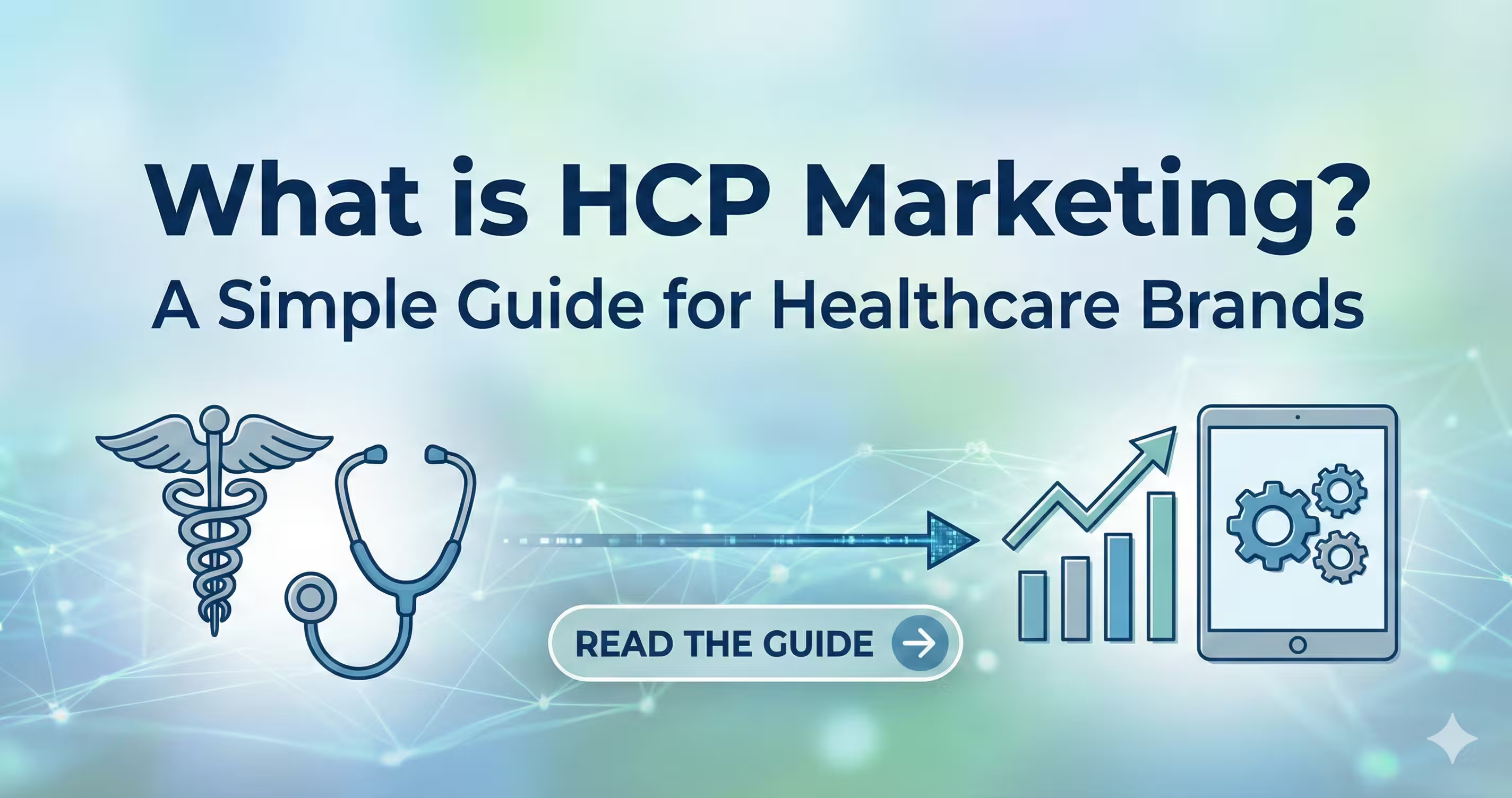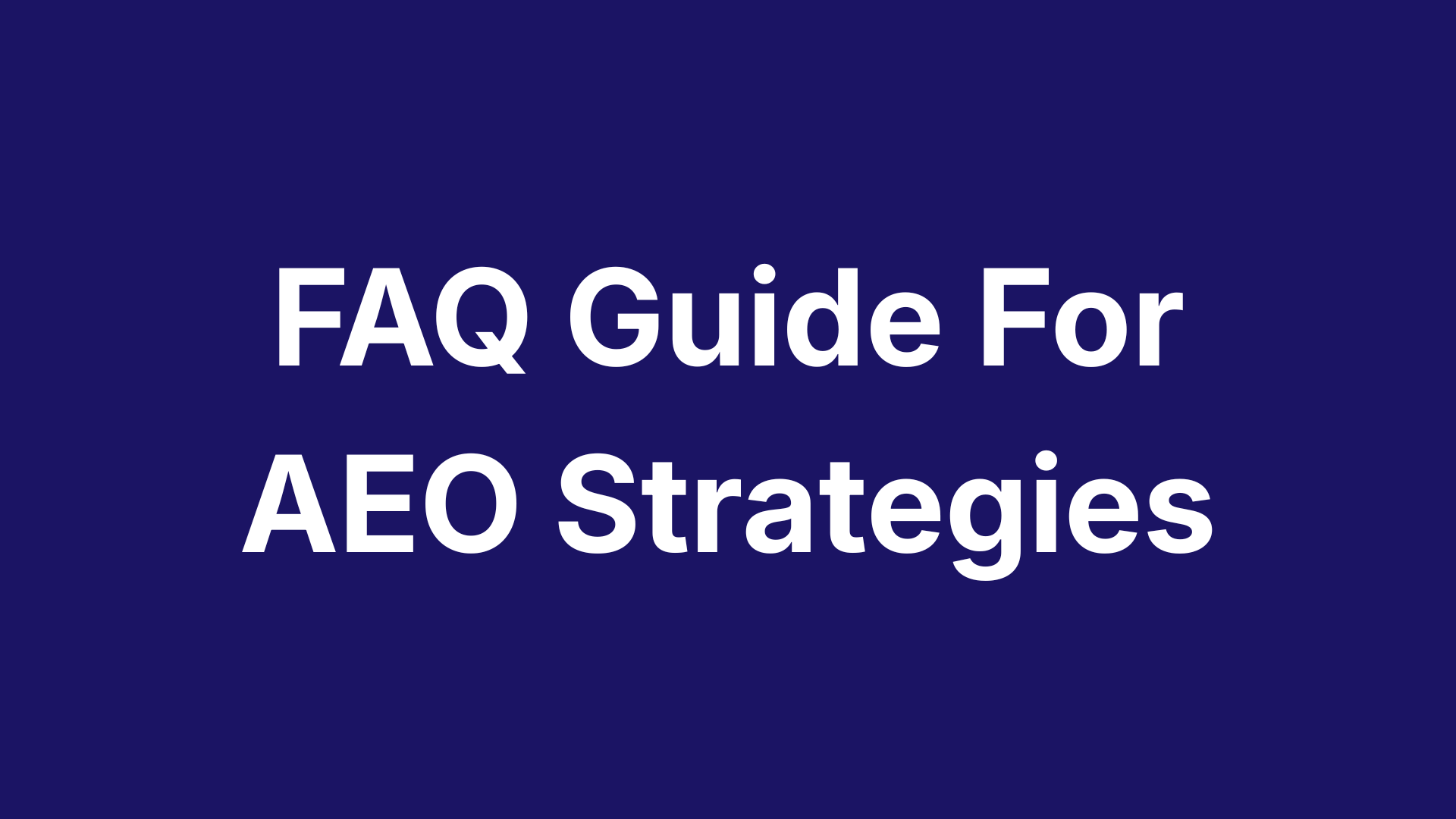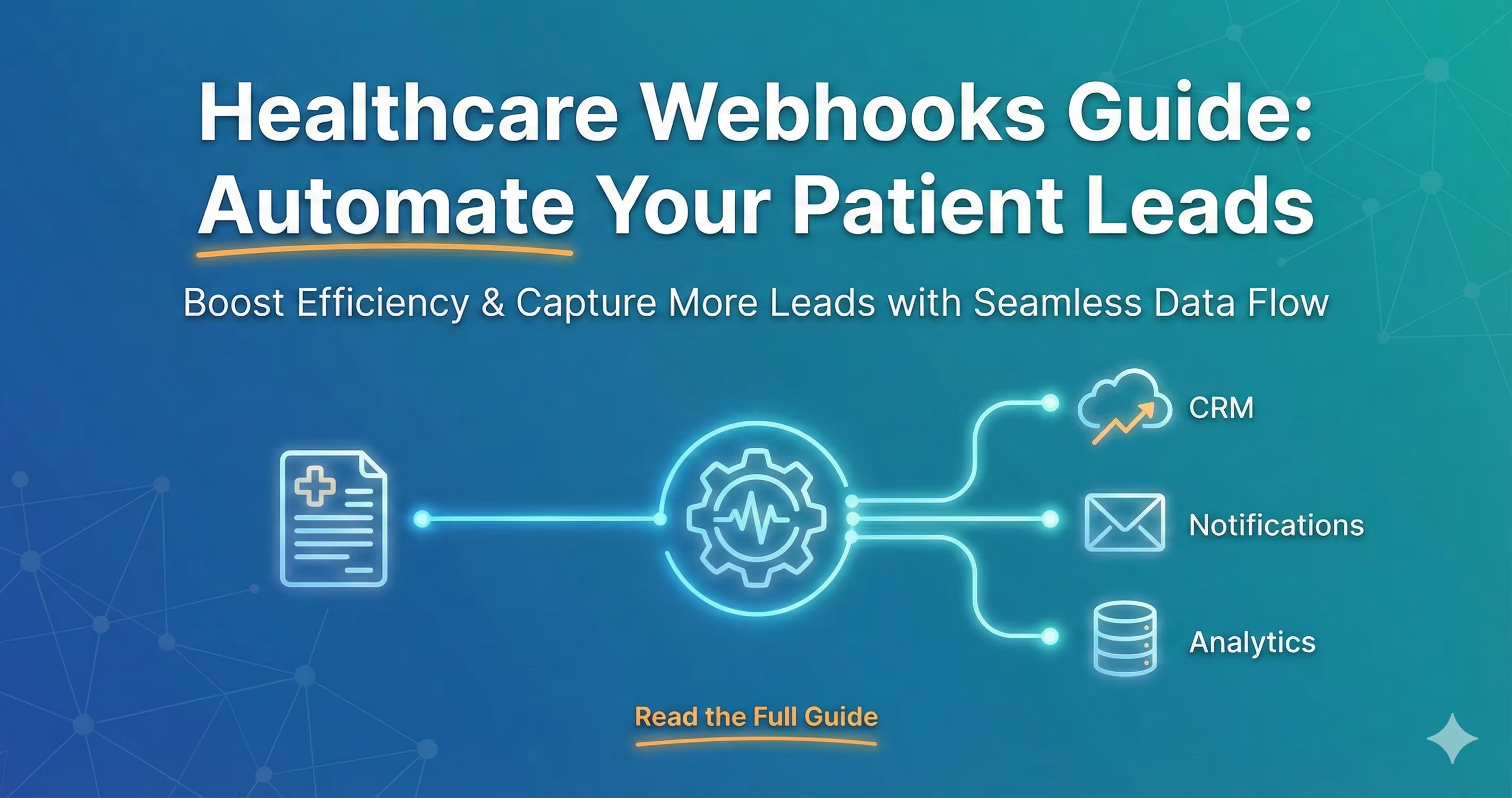Read more Articles
Keep up to date with medspa marketing strategies.

In the healthcare industry, few terms carry as much strategic weight as HCP marketing. Short for Healthcare Provider marketing, it refers to the specialized practice of promoting products, services, or innovations directly to licensed medical professionals. These campaigns are not aimed at patients, but rather at physicians, nurse practitioners, pharmacists, and other decision-makers who influence patient care and purchasing decisions.
When asking “what is HCP marketing,” it’s essential to recognize that it’s not just about promotion — it’s about building trust and credibility with providers who have the authority to shape treatment plans and purchasing decisions. This is why HCP advertising is designed with a completely different mindset than consumer marketing.
In 2025, HCP digital marketing has evolved into a complex and highly competitive field, laden with stringent compliance requirements. Understanding its intricacies and distinguishing it from patient-facing marketing is crucial for those aspiring to excel in the medical B2B space.
- HCP Marketing Defined: HCP (Healthcare Provider) marketing focuses on promoting products and services to licensed medical professionals like physicians, nurse practitioners, and pharmacists, rather than patients.
- Distinction from Patient Marketing: HCP marketing emphasizes evidence-based information, clinical outcomes, and compliance with strict regulations, contrasting with the lifestyle-oriented approach of consumer marketing.
- Target Audience: Key HCPs include physicians, nurse practitioners, pharmacists, and hospital administrators, requiring precise targeting for effective campaigns.
- Marketing Channels: Effective strategies incorporate a mix of digital and traditional channels, such as conferences, email marketing, SEO, paid media, and platforms like Doximity and Medscape.
- Successful Strategies: Key strategies include an education-first approach, leveraging peer influences, specialty segmentation, omnichannel engagement, and backing claims with clinical evidence.
- Importance of Data: Data analysis is crucial for effective HCP marketing, helping tailor campaigns and improve engagement with healthcare providers.
Marketing to healthcare providers is a distinct discipline from consumer marketing. Unlike patients who respond to lifestyle benefits and relatable storytelling, HCPs are motivated by evidence, clinical outcomes, and peer-reviewed data. This unique aspect of HCP marketing sets it apart from patient marketing.
Another defining factor in HCP marketing is the paramount importance of compliance. Every piece of content must adhere to rigorous industry regulations, from HIPAA’s privacy requirements to FDA guidelines on promotional claims. Even seemingly innocuous copy can lead to significant penalties if it’s misleading, omits risks, or promotes an off-label use. This emphasis on compliance underscores the regulatory nature of HCP marketing.
The buying cycle in advertising to HCPs is also longer and more complex. A single purchasing decision might involve multiple stakeholders — from department heads to procurement teams — requiring a combination of educational content, personal outreach, and trust-building over time. This is why HCP marketing tactics often combine scientific credibility with consistent, multi-channel engagement.
The term “Healthcare Provider” is broader than most people realize. It includes:
Understanding precisely who you are targeting — and how to engage HCPs within that segment — is the first step toward a successful campaign. Recognizing and respecting the unique motivations and preferred channels of your HCP audience is crucial. This understanding ensures that your HCP marketing data is precise and up-to-date, making your audience feel valued and considered.
HCP marketing isn’t just for large pharmaceutical companies — a wide range of businesses and organizations rely on it to build relationships with healthcare providers and influence clinical decision-making. Any business that sells products, services, or technologies directly to licensed medical professionals can benefit from a well-structured HCP marketing strategy.
Marketing Agencies Specializing in Healthcare
Agencies like Nexamed partner with medical organizations to plan, execute, and optimize HCP campaigns. By combining compliance knowledge with data-driven marketing tactics, these agencies bridge the gap between innovative products and the providers who need to know about them.
Pharmaceutical and Biotech Companies
Drug manufacturers and biotech firms rely heavily on HCP advertising to educate providers about new treatments, indications, and clinical trial results. Their focus is on evidence-based content that influences prescribing decisions while adhering to strict FDA regulations.
Medical Device Manufacturers
Companies producing surgical tools, diagnostic equipment, and wearable health devices target HCPs to demonstrate product efficacy and integrate devices into treatment protocols. We work with many HCP who are looking for medical device marketing for their clinic.
Diagnostic and Laboratory Services
Labs and diagnostic testing companies market to physicians, clinics, and hospital administrators to encourage test adoption and integration into patient care workflows.
Healthcare Software Providers
EHR (Electronic Health Record) vendors, telehealth platforms, and practice management software companies use HCP digital marketing to reach decision-makers within healthcare practices and health systems.
Continuing Medical Education (CME) Providers
Organizations offering accredited education programs for medical professionals use HCP marketing to drive enrollment and engagement, often leveraging conferences, webinars, and peer-led content.
Medical Supply and Distribution Companies
Businesses supplying consumables like gloves, syringes, wound care products, or PPE need to reach purchasing decision-makers within clinics, hospitals, and specialty practices.
Clinical Research Organizations (CROs)
CROs use HCP marketing to recruit investigators, study sites, and referring providers for clinical trials.
Hospitals and Specialty Clinics
Even healthcare organizations themselves engage in HCP marketing when building referral networks, promoting new service lines, or recruiting top-tier medical talent.
By identifying the businesses that benefit most from HCP marketing, it’s clear that the discipline plays a pivotal role across the healthcare ecosystem — connecting innovation with the professionals who can put it into practice.
Reaching healthcare providers requires a mix of digital and traditional outreach. The most successful HCP marketing tactics use multiple channels, including:
Success in HCP marketing comes from creating value first. Proven strategies include:
Data forms the foundation of modern HCP digital marketing. By analyzing prescribing habits, specialty demographics, and past engagement history, marketers can refine their outreach for maximum impact. Proper use of HCP marketing data ensures messages are relevant, timely, and aligned with the provider’s interests, without crossing compliance boundaries.
When deciding how to engage HCPs, it’s essential to understand their time constraints and professional priorities. Most HCPs prefer concise, evidence-based content they can review between patient visits or during short breaks.
HCP marketing operates under one of the most regulated environments in the world. Key compliance areas include:
FDA Marketing Rules — Claims must be accurate, balanced, and supported by evidence.
HIPAA & Privacy Regulations — Patient data must never be used without proper authorization.
PhRMA & AdvaMed Codes — Industry standards that govern interactions with healthcare professionals.
Avoiding Off-Label Promotion — Never promote uses for products that are not approved by official authorities.
Failing to follow these guidelines can lead to fines, lawsuits, and damage to reputation, making compliance an essential part of any HCP advertising or digital marketing effort. The serious consequences of non-compliance in HCP marketing emphasize the importance of strict adherence to regulations.
Because HCP campaigns often have longer timelines, success metrics should extend beyond just raw lead counts. Key performance indicators might include:
Engagement Rates — Email opens, content downloads, webinar registrations.
Sales Cycle Progression — Movement of contacts through the buying funnel.
Event Interactions — In-person meetings, booth visits, or CME attendance.
ROI by Channel — Assessing which HCP marketing tactics generate the highest-quality leads.
The next few years will bring major shifts in how HCPs are reached. Key trends include:
HCP marketing is one of the most challenging — and rewarding — areas of healthcare promotion. By blending education, compliance, and long-term relationship-building, businesses can position themselves as trusted partners to the medical community.
As the industry continues to evolve, the most successful brands will combine proven relationship-building strategies with innovative HCP digital marketing approaches — all while respecting the unique demands of advertising to HCPs in a regulated industry.
If you are looking for a healthcare marketing agency for your business, send us a message.
You’ve outgrown "basic" marketing. Nexamed builds the advanced lead-gen infrastructure your med spa needs to capture high-ticket patients and scale without the manual mess.
Keep up to date with medspa marketing strategies.

